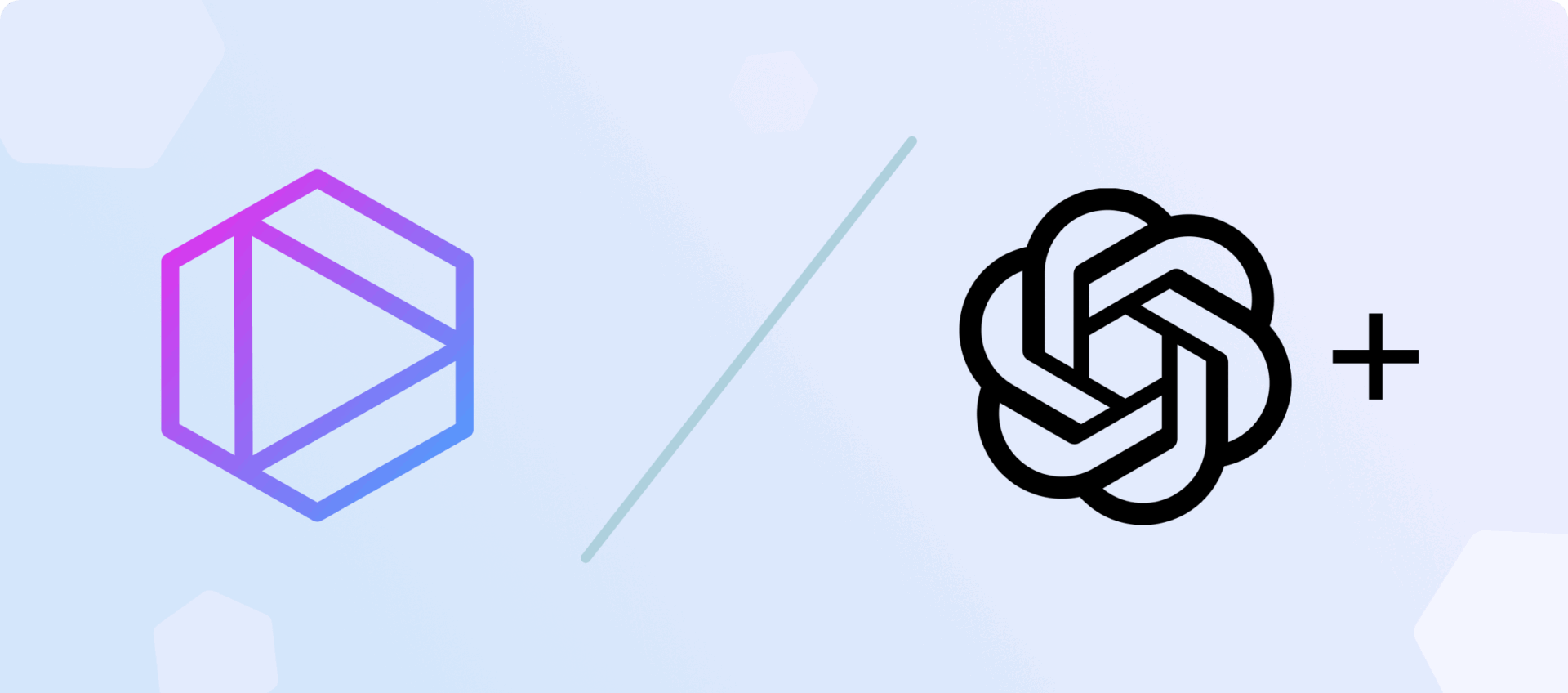
There’s been a lot of noise recently around ChatGPT’s ability to write code. But when it comes down to it, is it really an effective AI code assistant for developers and R&D enterprise teams?
To fully understand the main differences between Tabnine Enterprise and ChatGPT Plus, we’ve put together a list of parameters that, as developers with years of experience serving the dev community, best reflect the needs and challenges of R&D organizations:
This section takes a more in-depth look at how the two solutions compare.
Tabnine’s code suggestions are context-sensitive and inline within the IDE, prompted as the developer types, or from natural language requests. There’s no need to copy and paste the code to your project. In addition, Tabnine’s AI models are aware of the organizational coding practices, styles, and standards, which is reflected in the accuracy of the code suggestions.
ChatGPT, on the other hand, can only code from scratch, and generates this code mainly from natural language requests, which requires providing detailed instructions and context, and then, obviously, adaption to the customer’s environment. Essentially, ChatGPT functions as a replacement for search and knowledge bases, such as Google and StackOverflow.
Tabnine Enterprise ensures full and complete privacy for its enterprise customers’ code:
ChatGPT Plus, however, uses user interaction data to train its models. It also may use the code it generates to train its AI models.
Tabnine’s code completion works directly within the developer’s IDE, offering whole-line and full-function suggestions as the user codes (or via natural language hints).
On the other hand, ChatGPT Plus only works on the dedicated ChatGPT website, generating code in response to requests. For the generated code to be relevant, the developer needs to provide multiple directions and instructions. Additionally, the generated code then needs to be copied/pasted into the IDE. This requires changing names, paths, etc., where required and can lead to bugs and other issues.
The code on which a solution’s AI models are trained can have legal implications for the companies that use the solutions.
Tabnine’s AI models are never trained on code with nonpermissive licenses and offer full transparency and attribution. This ensures that Tabnine isn’t restricted by the copyleft provisions of GPL licenses, and protects our users and customers from possible related consequences. This policy is also in line with Tabnine’s goal to honor the intent of code authors and maintain good faith with the rest of the developer community.
However, ChatGPT trains its models on OpenAI, which could result in possible legal implications for its customers. There’s also evidence that ChatGPT has copied whole sections of nonpermissive coding, creating additional possible legal liabilities for its users.
The ability of the AI models to understand and account for context has a major impact on the amount of effort required by both the entire developer and the entire R&D team to generate high-quality code that aligns with the org’s own best practices, conventions, and styles.
Tabnine can understand the relevant context from your project’s existing code as well as the organization’s private code repositories that our AI models are trained on.
When using ChatGPT Plus, the developer interaction is far more complex, and providing the relevant context when composing a code request is practically impossible. Since the code provided is boilerplate, it requires the context to be provided in detailed, natural language, often needing multiple iterations. Even after being generated, considerable effort is required to copy/paste the code and adapt it to the relevant environments.
ChatGPT Plus is trained only on OpenAI, while Tabnine Enterprise gives our customers the ability to connect our AI models to their code repositories. It’s also possible to connect different models to different repos specific to certain teams. This enables the models to learn the organization’s best practices, styles, naming conventions, and more, providing code suggestions that are both context-sensitive and relevant. In addition, this helps companies onboard and train new team members and junior developers way faster, while removing the burden from senior devs.
ChatGPT Plus doesn’t offer any type of centralized configuration or management.
Tabnine Enterprise’s centralized configuration allows organizations to do several things:
Tabnine allows enterprise customers to configure and manage user roles and permissions. ChatpGPT Plus doesn’t offer any user management capabilities.
Tabnine is the AI coding assistant that helps development teams of every size use AI to accelerate and simplify the software development process without sacrificing privacy, security, or compliance. Tabnine boosts engineering velocity, code quality, and developer happiness by automating the coding workflow through AI tools customized to your team. Tabnine supports more than one million developers across companies in every industry.
Unlike generic coding assistants, Tabnine is the AI that you control:
It’s private. You choose where and how to deploy Tabnine (SaaS, VPC, or on-premises) to maximize control over your intellectual property. Rest easy knowing that Tabnine never stores or shares your company’s code.
It’s personalized. Tabnine delivers an optimized experience for each development team. It’s context-aware and delivers precise and personalized recommendations for code generation, code explanations, guidance, and for test and documentation generation.
It’s protected. Tabnine is built with enterprise-grade security and compliance at its core. It’s trained exclusively on open source code with permissive licenses, ensuring that customers are never exposed to legal liability.
Try Tabnine for free today or contact us to learn how we can help accelerate your software development.
Tabnine provides accurate and personalized code completions for code snippets, whole lines, and full functions. Tabnine Chat in the IDE allows developers to communicate with a chat agent in natural language and get assistance with various coding tasks, such as:
Learn more about using Tabnine AI to analyze, create, and improve your code across every stage of development: